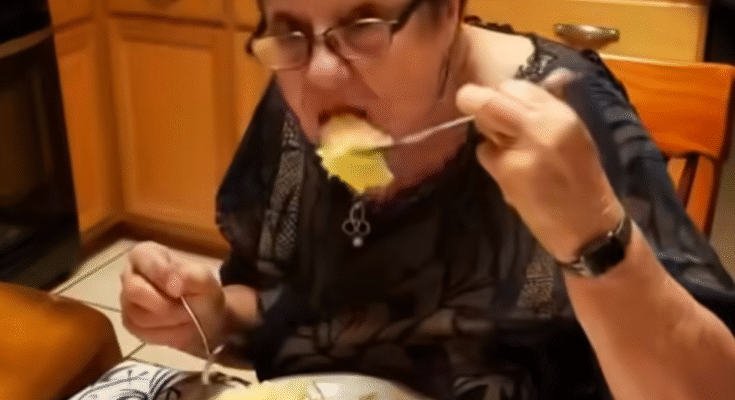She Took My Dinner, Then Blamed Me Online — But the Internet Had My Back
I’m currently eight months pregnant, and last week, I put a lot of effort into making a full homemade dinner for my family. My husband and our two kids were home, and his mother was visiting. I made enough for everyone, including a little extra for myself, since I’ve been dealing with intense cravings lately. After cooking, serving, and making sure everyone had their food, I stepped away briefly to finish up a chore in the laundry room. I was gone for maybe ten minutes. When I came back to the table, my plate was empty. Gone. Clean. I thought maybe someone had moved it, but no—my food had been eaten.
Confused and honestly a bit stunned, I asked if anyone had seen my plate. That’s when my mother-in-law calmly looked up and said, “Oh, I ate it. I was still hungry and it looked good.” She had already finished her full plate, mind you. No apology, no remorse. Just… she wanted more, so she took it. I was speechless. I didn’t want to cause a scene, especially in front of the kids, so I stayed quiet, sat down, and quietly drank some water while the rest of them finished eating.
After dinner, she asked if I had containers she could use to take some leftovers home. At that point, I couldn’t hold back anymore. I told her that the remaining food was meant for me, especially since I hadn’t gotten to eat my dinner. She rolled her eyes and told me I should’ve cooked more “if I was going to be so territorial.” I told her that taking someone else’s plate—especially the pregnant woman who cooked the entire meal—was rude and disrespectful. Her response? “You’re overreacting.”
Later that night, my husband quietly asked his mom to apologize. She refused. Not only did she not apologize, but the next day she posted on Facebook about how today’s younger generation is “so entitled and disrespectful” to elders, and how “hospitality is dead.” She made vague references to “certain people” being rude and selfish, and her friends in the comments were eating it up—telling her she was a saint, that she didn’t deserve to be treated that way, and that it’s sad how she’s being “mistreated in her old age.”
I hadn’t said a word publicly. But my husband, fed up and furious on my behalf, shared what actually happened—calmly, factually—on Reddit. He didn’t mention names, just the situation. The post exploded. Thousands of people responded, overwhelmingly siding with me. They pointed out how wrong it was for someone to eat another person’s meal, especially without asking, and how unacceptable it is to twist the story online to gain sympathy.
Some even said what I hadn’t dared say out loud: that my mother-in-law knew exactly what she was doing, and that she probably assumed I wouldn’t speak up. They were right. I hadn’t planned to. I just wanted peace. But seeing so many strangers validate what happened—recognize how hurtful and unfair it was—meant more to me than I expected.
I still haven’t confronted her, and I probably won’t. But I’ve learned that respect in a family isn’t just about being quiet or polite. It’s also about boundaries. And sometimes, it’s okay to say: that wasn’t okay.



